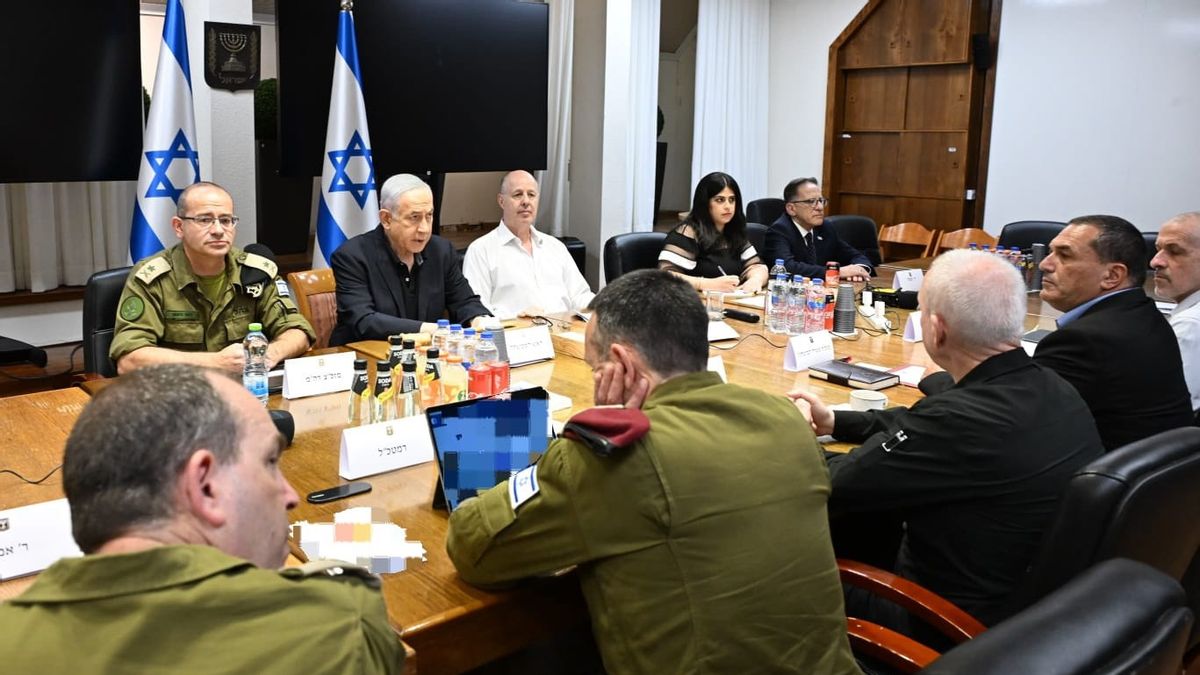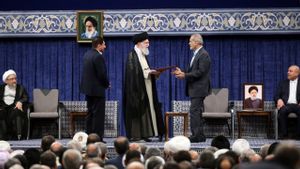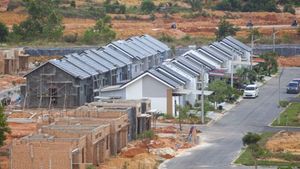JAKARTA - Israel's Security Cabinet on Sunday approved the country's prime minister and defense minister to respond to the attacks on Golan, while two hardline ministers did not vote.
The Forum authorized Prime Minister Benjamin Netanyahu and Defense Minister Yoav Gallant to decide Israel's scale and response time to the deadly rocket strike in Golan yesterday, PM Netanyahu's office said.
After the ministers objected to a shortcut in which the attack on Yemen was approved last week, in today's meeting, each minister was given enough time to speak, according to the Yetioth Ahronoth newspaper.
The report said Finance Minister Bezalel Smotrich and National Security Minister Itamar Ben Gvir abstained in the vote.
Talks about hostage-taking have been discussed, but another meeting will be held to focus on Israel's next move, according to the newspaper.
Rocket attacks in Israel's occupied Golan Heights killed 12 teenagers and children on Saturday. The militant group Hezbollah denied responsibility for the attack on the Majdal Shams, Israel's deadliest attack or territory annexed by Israel since the latest conflict in Gaza, Palestine between Hamas and Israel broke out on October 7, 2023, reported by Reuters.
Israel has vowed to retaliate against Hezbollah in Lebanon, and Israeli fighter jets attacked targets in southern Lebanon on Sunday.
Israel says the rocket is an Iranian-made missile fired from the northern region of the southern Lebanese village, blaming Iran-backed Hezbollah. It is unclear whether the dead children and adolescents were Israeli citizens.
SEE ALSO:
"The rockets that killed our boys and girls were Iranian rockets and Hezbollah was the only terror organization that had the rocket in its arsenal," the Israeli Foreign Ministry said.
Two security sources told Reuters Hezbollah was on high alert and had cleared several important locations south of Lebanon as well as the East Bekaa Valley in the event of an Israeli attack.
Israeli forces have been shooting each other for months with Hezbollah fighters in southern Lebanon, but both sides appear to have avoided an escalation that could lead to an all-out war, potentially dragging other powers including the United States and Iran.
The English, Chinese, Japanese, Arabic, and French versions are automatically generated by the AI. So there may still be inaccuracies in translating, please always see Indonesian as our main language. (system supported by DigitalSiber.id)













